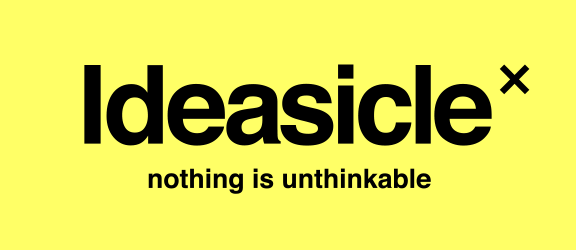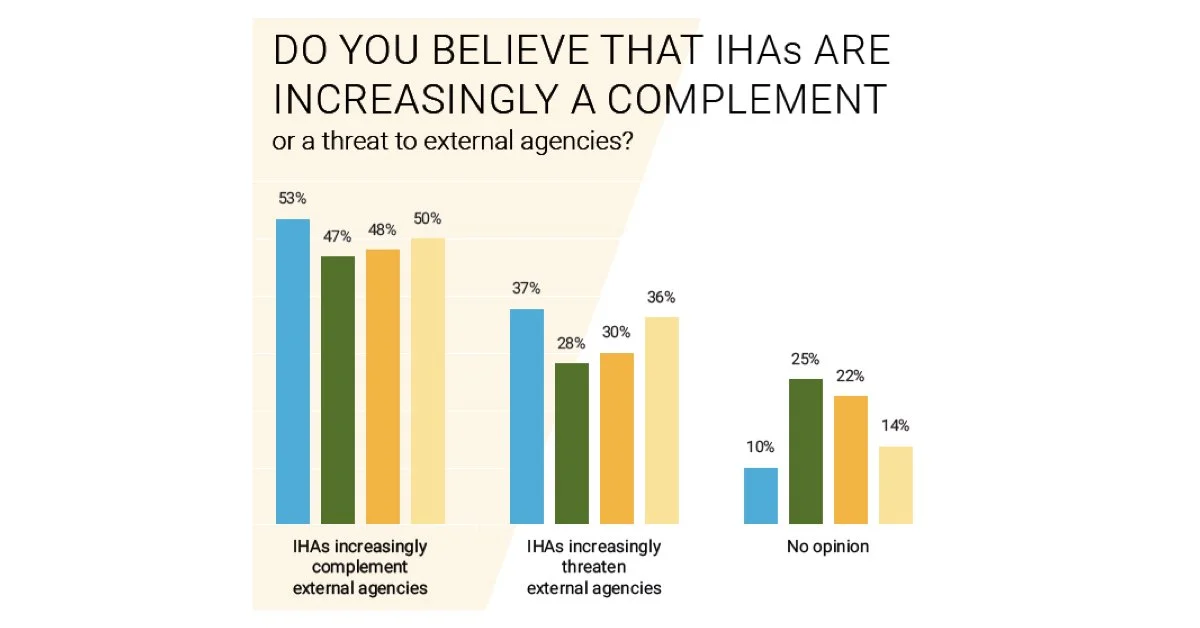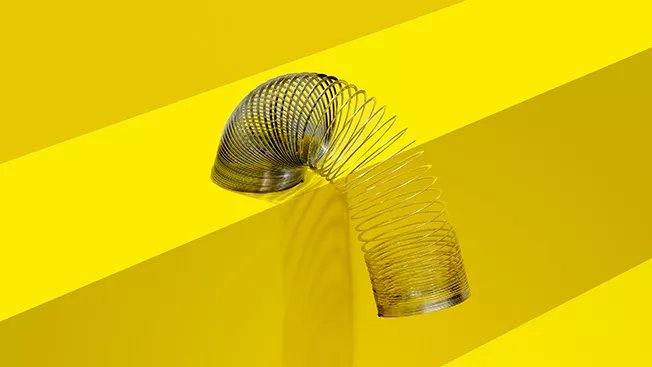In my three decade career in the advertising business, I’ve worked at eight agencies in five cities. There wasn’t a single agency who didn’t, at times, go outside to get creative ideas. It’s not ideal, of course. Agencies want to use their own people whenever possible. It’s more profitable. But here are three cases where going outside is the right business decision.
Read MoreErwin Schrödinger said, “Consciousness is the fundamental reality.” So doesn’t it stand to reason that if we, to the degree we can, remove the UNfundamental reality (our physical reality) from the idea generating arena, then each participant’s individual consciousness is better able to shine through? And, better yet, the consciousness of multiple individuals on a team intermingle more purely? That’s exactly what we’ve found.
Read MoreI stumbled upon a wonderful Facebook post from Beatle John on Facebook today that I think gives us several insights into the creative process. The post quotes Ivor Davis, an investigative reporter who was given unprecedented access to The Beatles when they were on tour in the early 1960’s. In the following blurb, Davis describes what he saw when he saw John and Paul working, creating, and writing some of the greatest music of all time.
Read MoreI’ve been using some form of Ideasicle X for fourteen years now, two with our new web application. And along the way my entire view of creativity itself has changed. I’ve learned so much about myself, I’ve learned new skills, and sharpened old ones. All by using this idea generating platform. Here are ten.
Read MoreIn today's interconnected world, virtual collaboration has become the norm for teams across diverse industries. While the benefits of virtual teamwork are widely acknowledged, one aspect that often goes unnoticed is the profound impact it has on nourishing a participant’s imagination. In this blog post, we explore three compelling ways in which virtual idea generation in teams nurtures the creative spirit, allowing ideas to flourish.
Read MoreWe are constantly scouring the science out there as it relates to improving our creativity. We want every advantage, right? You can see all of the individual studies we’ve found so far on our Science tab. But what if we combined the insights from different studies? How unstoppable would we be then? Well, let’s see what happens when you combine walking, the color green, and getting off your smartphone.
Read MoreIn-house agencies live their brand every day, they’re immersed in its culture, they get it first hand. However, the in-house agency is at a disadvantage to external agencies in one respect: the thinking can get insular. While external agencies are working on different brands all the time, in-house agencies work on one brand. All. Day. Long. In-housers know they need to bring in outside perspective from time to time, but many don’t want the risks involved in bringing in outside help. Is there an answer? Short answer, yes. Longer answer below.
Read MoreCreativity is a complex and fascinating phenomenon that has captivated humans for centuries. From the works of Leonardo da Vinci to the innovations of Steve Jobs, creativity has been celebrated as a hallmark of genius and a key driver of progress and innovation. However, for a long time, creativity was thought to be an elusive and mysterious concept that could not be isolated, measured or studied scientifically. That all changed with a groundbreaking study by J.P. Guilford in the 1960s.
Read MoreFor 13 years we have been on the front lines of bad ideas. Wait, that didn’t come out right. Let me try again. For 13 years we have been on the front lines interacting with marketers and agencies who are sick of their bad ideas and need help. That’s better. So we hear all the reasons. And sometimes it’s not until they see our process that they see what their own issues were. Anyway, here you go. The top 5 reasons marketing ideas have been lacking according to our customers.
Read MoreAlan Watts was an English philosopher, writer, and speaker, focusing on popularizing Japanese, Chinese and Indian traditions of Buddhist, Taoist, and Hindu philosophies for a Western audience. I stumbled upon him years ago while killing time on YouTube and was blown away. I highly recommend any of his lectures. But one point he made in one lecture has always stuck with me and just today I realized why: it explains the importance of human creativity.
Read MoreWe like to think ideas are in our control. That we can sit down, think, and boom, an idea will happen. And that may happen for some, sometimes. But more often than not an idea hits you when you least expect it. In the shower, while gardening, or even by accident. I was curious about accidental ideas and did a little research. What follows are several great examples of these accidents and then ways we might be able to encourage happy accidents to occur.
Read MoreLook at the problems you face, look at the components of those problems, and ask yourself, “I see what this component is, but what could it be?” The more we can train ourselves to realize nothing is as it seems, the more likely we are to see beyond the narrow definitions that surround us, and the more likely we are to see all that things that could be.
Read MoreHave you ever found yourself stuck in a creative rut when you're jamming like hell on a particular idea project, unable to generate new ideas? According to a recent study by Jackson G. Lu, Modupe Akinola, and Malia Mason at Columbia Business School, switching back and forth from one creative task to another can actually increase creativity by reducing a thing called “cognitive fixation.”
Read MoreTurns out the most potent motivation techniques do not involve money or bonuses or better coffee (extrinsic motivation), but involve getting validation, recognition, and praise (intrinsic motivation). It occurred to me that virtual idea generation, because you can invite employees to an idea project, has a tangential benefit of providing employees many, if not all, of these intrinsic motivations.
Read MoreWe’ve been playing around with ChatGPT now for a few weeks. And while many sages in the advertising industry are poo-pooing it for not being innovative or bringing truly original creativity, I think they are missing a powerful and useful application of this technology. And one we plan to use at Ideasicle X.
Read MoreIntuitively I have always thought that creativity is a spiritual act. I mean, what is “God” to most people but the ultimate “creator,” right? But I’ve never been able to put my finger on why I feel that creativity is spiritual. So I asked the AI engine ChatGPT and its answer gave me a very interesting insight. Below is the prompt I used, the ChatGPT response, and then my reaction to it. Hope it inspires you a little.
Read MoreEvery Ideasicle Expert has agency over themselves. Beyond their individual genius, their agency over themselves pays powerful dividends when it comes to virtual idea generation. Here’s why.
Read MoreI regularly check the science boards and university press releases for new studies on creativity. Specifically, studies that show us some small or big way to increase our own creativity. In compiling ten years worth of such studies on our Scientific Studies page, I noticed a pattern across many, if not all of those studies. That is, reducing our ability to focus on the physical 3D world increases our creativity. These studies appear quite different on the surface—the creative effects of sound, light, certain activities like walking, etc.—but I believe they are just different ways we can get out of this world in order to be more creative.
Read MoreCould artificial intelligence further improve the virtual model we’ve already created with Ideasicle X? To explore what’s possible I’ve had several conversations with companies who specialize in AI. What follows are simple applications of AI we came up with, progressing from the basic wow to the less expected holy moly.
Read MoreOkay, this study is almost embarrassing to humanity, but is super useful in our collective struggle against fear and doubt. It's from Lior Noy and Liron Rozenkrantz at the Weizmann Institute of Science in Israel and it suggests that the placebo effect not only works for physical ailments, but as a way to increase our creativity. This study reveals the subtle and frail nature of creativity, but also reveals how we can overcome our own insecurities.
Read More





















